Whole-Person Health | Naturopathic Medicine – Forget everything you thought you knew about healthcare. Naturopathic medicine isn’t just an alternative; it’s a transformative journey towards better health. This holistic approach integrates age-old healing traditions with contemporary medical science, emphasizing the body’s intrinsic capability to heal and maintain itself.
Key Takeaways
- Holistic Healing: Naturopathic medicine integrates traditional therapies and modern science for comprehensive health improvement.
- Self Healing: Emphasizes the body’s inherent ability to heal and maintain itself.
- Preventive Care: Focuses heavily on preventing diseases through lifestyle and natural therapies.
What is Naturopathic Medicine?
At the heart of naturopathic philosophy lies the commitment to treat the whole person—mind, body, and spirit. By assessing the underlying causes of symptoms, rather than just the symptoms themselves, naturopathic physicians forge a path to deep, lasting health improvements.
How Does Naturopathy Foster Self-Healing?
Imagine your body as a complex, well-coordinated system naturally inclined towards self-repair. Naturopathy taps into this innate potential by supporting the body’s own healing capabilities. Through methods like dietary changes, lifestyle adjustments, and stress reduction, naturopathic medicine strengthens the body’s defenses and promotes self-healing, paving the way for a healthier, more vibrant life.

The Benefits of Integrating Naturopathic Medicine in Physical Therapy Businesses
Physical therapy and naturopathy? A match made in health heaven. When combined, these fields offer a powerful, comprehensive approach to health care. Physical therapists can incorporate naturopathic strategies to enhance patient care, offering treatments that are tailored to individual needs and focus on holistic well-being.
Understanding Naturopathy: A Deeper Dive
The Principles of Naturopathic Medicine
- The Healing Power of Nature (Vis Medicatrix Naturae): This principle is about trusting in the body’s inherent wisdom to heal itself.
- Identify and Treat the Cause (Tolle Causam): Instead of merely eliminating symptoms, naturopathy aims to identify and treat the root cause of illness.
- First Do No Harm (Primum Non Nocere): Naturopathic treatments strive to be as non-invasive as possible and work in harmony with the body.
- Treat the Whole Person (Tolle Totum): This approach considers all factors that influence health, including physical, mental, emotional, genetic, and environmental factors.
- The Physician as Teacher (Docere): Naturopathic practitioners educate patients on steps they can take to improve their health.
- Preventive Medicine (Praevenire): Emphasizes the prevention of disease and the attainment of optimal health.
Versatile Methodologies in Practice
Naturopathic physicians are equipped with a broad arsenal of therapies to tailor treatment specifically to each patient. These include, but are not limited to, nutritional counseling, herbal medicine, homeopathy, and acupuncture. Such diversity in treatment options not only addresses specific health issues but also enhances overall well-being.
Building on Foundations: The Integration of Naturopathic Medicine in Physical Therapy
In the realm of physical therapy, integrating naturopathic medicine can dramatically enhance treatment outcomes. This synergy allows therapists to address not just the physical aspects of injury or illness but also the holistic elements that contribute to overall wellness. For instance, incorporating herbal anti-inflammatories or techniques like acupuncture can speed up recovery times and improve the effectiveness of physical therapy regimens.
Personalized Care: The Core of Naturopathy
Naturopathy excels in its personalized care approach. Every treatment is tailored to the individual, considering their unique physical and emotional makeup. This bespoke approach not only ensures that treatments are more effective but also minimizes the risk of side effects that can occur with more generic treatments.

How Naturopathic Methods Complement Physical Therapy
- Herbal Medicines: Can reduce inflammation and pain, aiding physical therapy treatments.
- Acupuncture: Known to relieve pain and enhance the body’s natural healing processes.
- Nutritional Advice: Proper nutrition supports tissue repair and overall health, vital for recovery in physical therapy.
Table: Comparison of Naturopathic and Conventional Treatments in Physical Therapy
| Treatment Method | Focus | Benefits |
|---|---|---|
| Conventional Physical Therapy | Physical recovery | Immediate improvement in mobility and pain relief |
| Naturopathic Medicine | Holistic health | Long-term health improvement, prevention of future injuries |
Frequently Asked Questions about Naturopathic Medicine
What can naturopathic medicine treat?
Naturopathic medicine is effective in treating a wide range of conditions from chronic pain, diabetes, and heart disease to mental health issues like anxiety and depression. It focuses on underlying causes rather than just symptoms, providing sustainable health solutions.
Is naturopathic medicine safe?
Yes, when practiced by a licensed naturopathic doctor, it is safe and effective. It uses natural, non-invasive methods that minimize risks of side effects.
How long does it take to see results from naturopathic treatment?
The time frame can vary significantly depending on the individual and their condition. Some may notice improvements in a few weeks, while others might see a gradual change over months.
Can naturopathic methods really help in physical therapy?
Absolutely. By addressing the whole body and not just specific symptoms, naturopathic methods can enhance the healing process, reduce recovery time, and improve the effectiveness of physical therapy treatments.
Explore More:
- Understanding naturopathic principles in depth at Naturopathic Principles.
- Discover various treatment methodologies at Naturopathic Treatments.
Moving Forward: Embracing a Holistic Approach in Physical Therapy
Embracing naturopathic medicine within physical therapy settings opens up a plethora of opportunities for enhanced patient care. This holistic approach not only treats the body but also educates and empowers patients towards a healthier lifestyle, which is crucial for long-term recovery and well-being.

